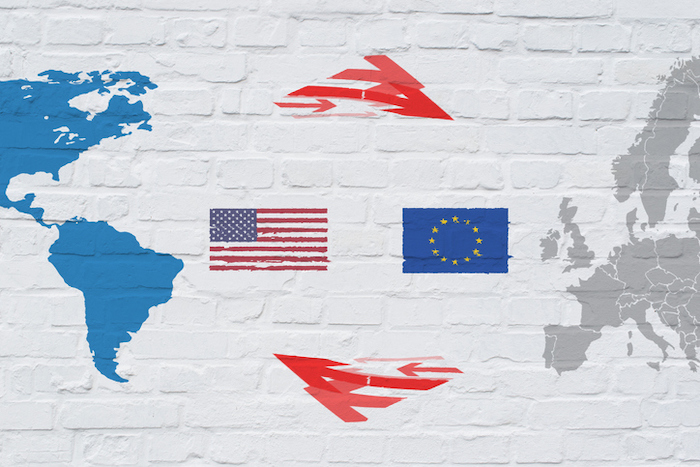Microsoft warns of increased election cyberattacks

What's new: Microsoft is warning that "foreign activity groups have stepped up their efforts targeting the 2020 election."
Why this matters: While anticipated, these attacks will be a decisive technical and political context between now and whenever the presidential election is decided -- and likely long afterwards.
Key points: According to a Microsoft report and blogpost ...
The Strontium group (AKA "Fancy Bear"), operating from Russia, has attacked more than 200 organizations, including political campaigns, advocacy groups, parties, and political consultants.
The Zirconium group, operating from China, has attacked high-profile individuals associated with the election, including people associated with the Joe Biden for President campaign and prominent leaders in the international affairs community.
The Phosphorus group, operating from Iran, has continued to attack the personal accounts of people associated with the Donald J. Trump for President campaign.
The majority of attacks, according to the company, have been detected and stopped.
Importantly, not just candidates and campaign staffers are being targeted, but also those they consult on key issues. These activities highlight the need for people and organizations (*cough* think tanks) involved in the political process to remain hyper vigilant.
What we're thinking: Three things: One, leading technology companies really are doing an amazing job holding off the cyber wolves. Two, it's instructive to realize just how dependent the nation is on the private sector when it comes to safeguarding our institutions and our way of life. Finally, three, we've only just begun to "cyber" all the "cybers" and it's going to be a tough slog.
Get ready for swarms of Ghosts

What's new: Anduril Industries has shown how a single "pilot" on the ground can control a swarm of unmanned aerial systems (UASs) using tailored artificial intelligence.
Why this matters: The Ghost 4 is a man-portable, highly modular drone that can be fitted with a suite of sensors to conduct reconnaissance missions and other "long endurance" operations.
Key points:
Anduril industries is a defense-tech startup founded by Palmer Luckey, creator of the Oculus Rift Virtual Reality headset.
The Ghost 4 uses a mix of machine learning and more traditional, rules-based software to coordinate within the swarm and to identify objects of interest.
Anduril recently signed a deal worth "several hundred million dollars" with US Customs and Border Protection (CBP) to provide a "virtual wall," which will include 200 surveillance towers to detect people and vehicles moving across the US border.
What we're thinking: We need more of this. Our defense innovation base is struggling to meet the nation's tech needs (as Klon has discussed previously) and attracting non-traditional participants, like Anduril, is key. Our marquee defense companies are essential, but not sufficient. When asked about why his company is different, Luckey said, “We’re usually building things that the government wants, but does not necessarily believe can be built. If we believe something can exist, we just make it as fast as we can.”
Yes, we need more of this.
Portland bans facial recognition

What's new: Portland's City Council has banned both private and public use of facial recognition technologies (FRTs), the most expansive ban in the US, according to The Verge.
Why this matters: Boston, San Francisco, and Oakland have banned public institutions from using FRTs, but this is the nation's first prohibition of private use.
Key points:
The new ordinance is divided into to two pieces. The ban of public use of FRTs went into effect immediately and city officials must report within 90 days on how they previously used these technologies. The ban on private use is effective on January 1, 2021.
“Portlanders should never be in fear of having their right of privacy be exploited by either their government or by a private institution,” Portland Mayor Ted Wheeler said during a hearing Wednesday, according to OneZero.
What we're thinking: FRTs are powerful and they are here to stay. Even so, they are far from perfect and have consistently been shown to have disproportionate impacts on minorities. This is especially true when users of these technologies grant them more authority than is warranted. But there is still a great deal of good that can be done with FRTs and a robust public debate is an essential part of balancing the public and private interests that may sometimes be in tension.
If you'd like to read more on this, we really like this accessable write up from our friend Jason Thacker (@jasonthacker).
Facebook told to stop moving data between the US and EU

What's new: Ireland's Data Protection Commission (DPC) issued a preliminary order suspending Facebook's ability to transfer data between the US and EU, according to Tech Crunch.
Why this matters: The social network's VP of global affairs, Nick Clegg, says the order introduces "significant uncertainty" for any business that relies on moving data across the Atlantic.
Key points:
The DPC oversees Ireland's compliance with the EU's General Data Protection Regulation (GDPR) and other important regulations like the Irish ePrivacy Regulation.
This preliminary order follows a significant EU ruling earlier this summer that killed a "safe harbor" data transfer agreement between the US and the EU -- also casting doubt on alternative transfer mechanisms.
At the heart of Irish and EU actions are concerns about data being transferred to the US and then being subject to American surveillance law.
Facebook has until mid-September to respond -- after which a final draft of the order will be sent to other EU data supervisors for approval.
What we're thinking: EU concerns about US survelliance laws aren't unfounded, but they're certainly overblown. More to the point, Facebook and other tech companies aren't wrong when they say this ruling won't just effect them -- large and small business in many sectors that rely on US-EU data flows will also be hit. At the root of all of this is the EU's tendency to regulate first and ask questions later. After two years of GDPR, it's tough to argue it has meaningfully done anything to make people or data more private or secure.
Energy's AI revolution

What's new: AI is playing a growing role in modernizing the global energy industry, according to Ariel Cohen over at Forbes.
Why this matters: Energy markets are data-driven and AI can potentially improve accessibility, efficiency, forecasting, and trading.
What we're thinking: Cohen does a good job of explaining some of the more interesting ways AI is shaping energy as a commodity and how those who best leverage this capacity will have an advantage in the marketplace. Give it a read, it's worth your time.







Please note that we at The Dispatch hold ourselves, our work, and our commenters to a higher standard than other places on the internet. We welcome comments that foster genuine debate or discussion—including comments critical of us or our work—but responses that include ad hominem attacks on fellow Dispatch members or are intended to stoke fear and anger may be moderated.
With your membership, you only have the ability to comment on The Morning Dispatch articles. Consider upgrading to join the conversation everywhere.